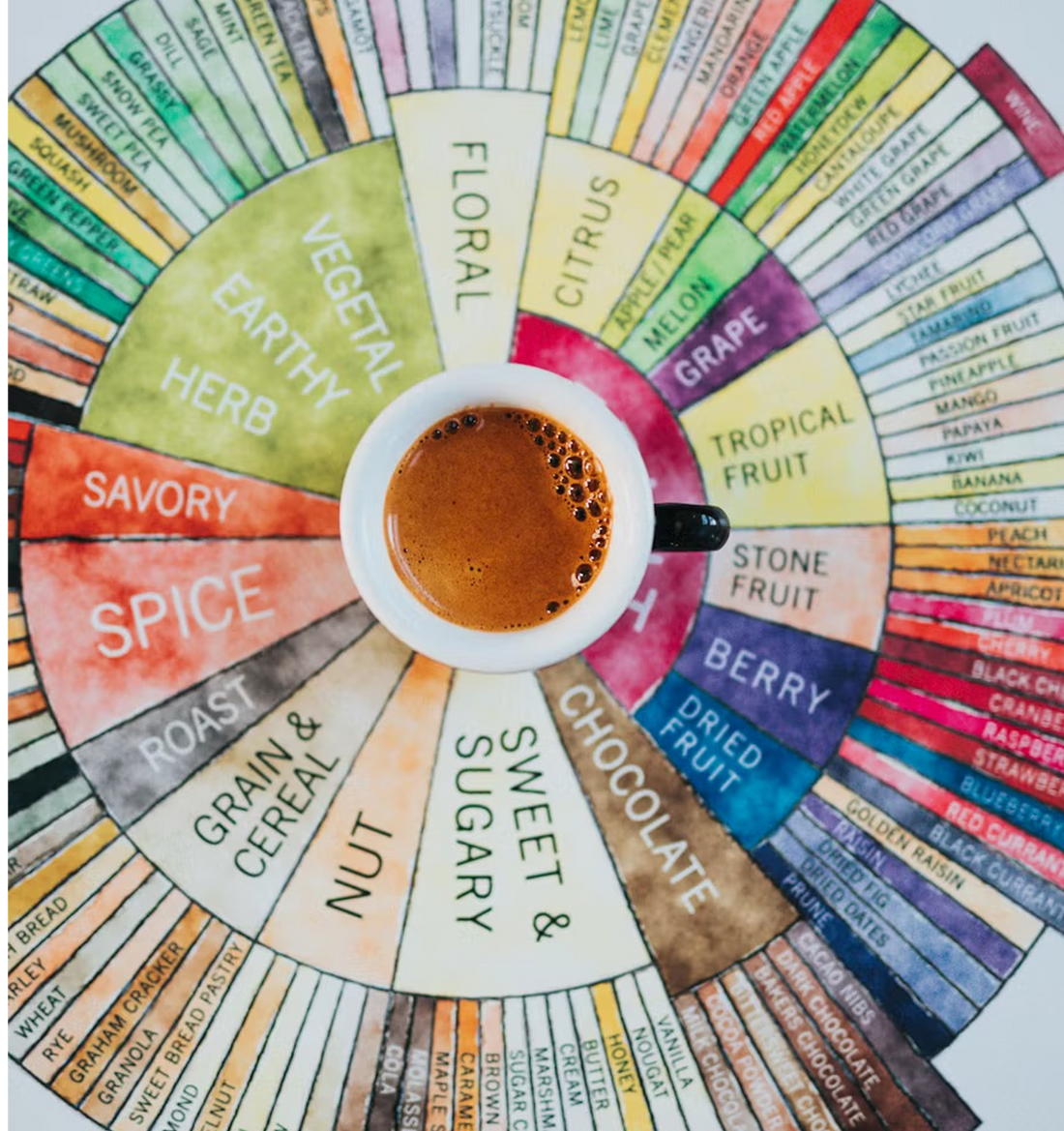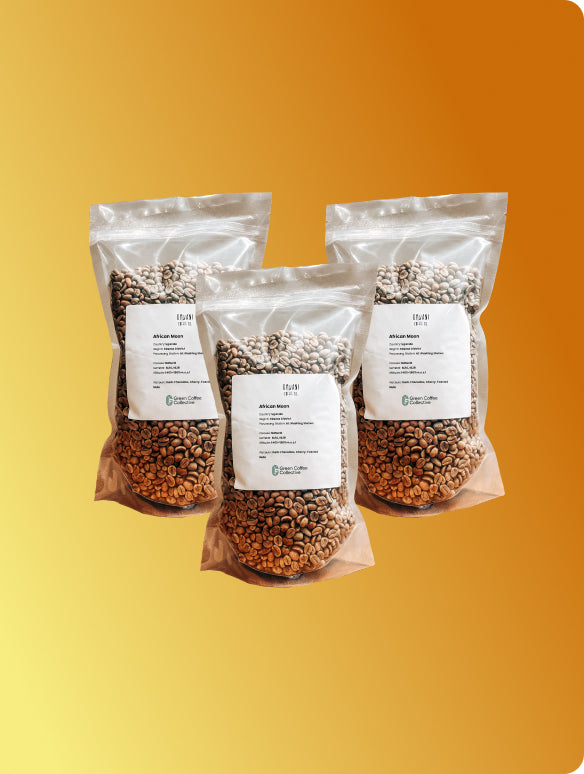The SCA flavour wheel is one of the most widely used tools in the coffee industry. Built on the World Coffee Research sensory lexicon, it reflects years of work from scientists, coffee buyers, and roasting companies. It’s meant to be a shared language for describing coffee. But like much of the industry, it’s shaped heavily by voices from the Global North.
That’s not surprising when you look at where the power, money, and infrastructure sit - in roasting companies, research institutions, and buying offices far from where coffee is grown. But it means that the flavours we’re told to look for - and value - are filtered through a Western lens. Many fruits, spices, and other references common in producing countries don’t appear at all. And when the language around coffee flavour doesn’t reflect your local ingredients, knowledge, or culture, it’s harder to participate.
Localising the flavour wheel is one way to begin changing that. It means adapting flavour references to fit what’s available and relevant in different regions. That might mean swapping out hard-to-find fruits for local ones or developing entirely new wheels based on scientific research rooted in the local context. The Counter Culture wheel is one example. Another is the work of Ārāmse, who proposes regionally grounded flavour wheels that better reflect local palettes and lived experience.
Why does this matter?
Coffee is global, but value is still concentrated in the Global North. Roasters, importers and retailers add most of the profit after coffee leaves producing countries. That imbalance is reflected not just in pricing, but in who gets to define quality, flavour, and expertise.
Decolonising the flavour wheel won’t fix that overnight. But it’s a small step toward shifting power - making the language of coffee more inclusive, and recognising the knowledge that already exists in producing countries. It’s one part of rethinking an industry still shaped by colonial legacies - and imagining one that’s fairer, more diverse, and genuinely global.

